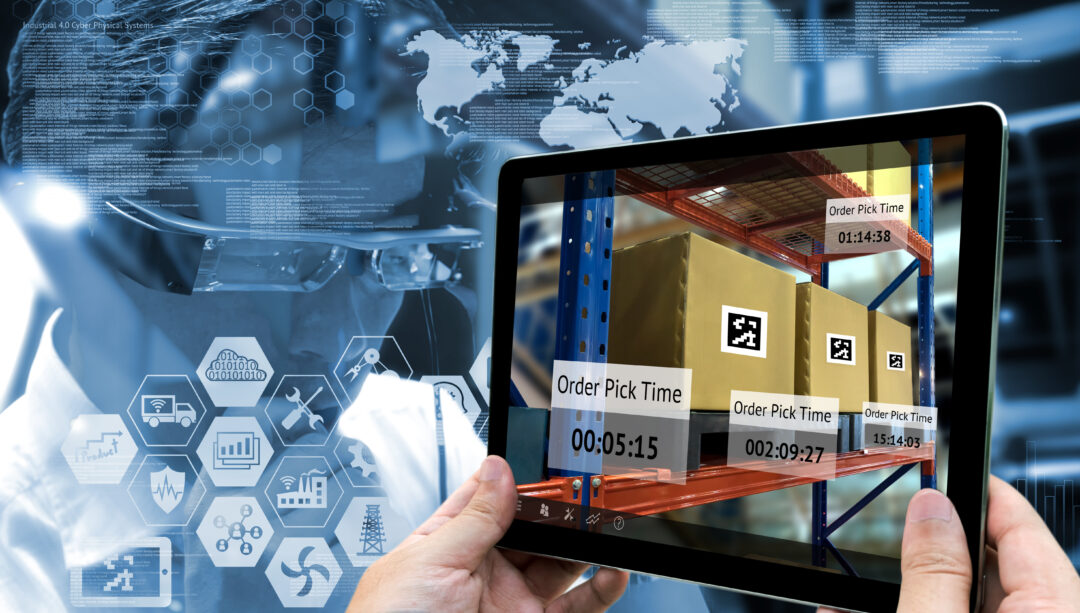This article explores how blockchain technology is driving value within supply chain operations
Supply chain operations have evolved rapidly over the past two years, as a result of the COVID-19 pandemic. Innovation to increase efficiency while staying protected from cyber attacks have become paramount for ensuring that products safely reach customers. Blockchain technology has been playing its role in supporting the supply chain from start to finish. With this in mind, we take a look at some of the most valuable use cases for blockchain in the supply chain.
NFT use cases for businesses
The benefits of immutability
One of the biggest selling points for blockchain technology generally, which is driving value in sectors from financial services to healthcare, is its immutability. Any information stored on a ledger cannot be altered, making the technology ideal for keeping records of any products being distributed through the supply chain.
Alejandro Tornero, general manager OARO Eco-NFT at OARO, explained: “The best way to ensure a secure supply chain is an indisputable ledger – a record of product and its provenance. Blockchain can provide that ledger.
“What blockchain provides when inserted into a supply chain is an auditable trail of every part, ingredient and system being used. The issue of counterfeit, fraudulent and suspect items (CFSI) is almost entirely solved through blockchain. This immutable ledger system creates a trusted network – an ecosystem of supply. In contrast to paper records, which fail to provide the level of traceability and security required, blockchain is hard-wired and has the efficiency, transparency, security, and risk mitigation capabilities that can’t be achieved by other systems.
“Blockchain isn’t just restricted to those industries requiring secure supply. Unquestionable traceability has numerous benefits across FMCG, fashion and electronics. Blockchain provides that definitive record of origin, allowing companies to tackle issues such as slavery and corruption in their supply chains.”
Cryptography in the supply chain
Underpinning this capability is cryptography — a technology that secures information and communication, preventing any user not involved in the correspondence to access the asset.
“When utilising blockchain appropriate in a supply chain context, proof of actions that have taken part between participants can be stored on a ledger, providing an irrefutable source of truth that an action took place at the time it was claimed,” said Conor Svensson, founder and CEO of Web3 Labs.
“These can be linked to ‘hashes’ of associated documentation, which are underpinned by secure cryptography. This means that it is impossible to alter the facts associated with an event after the fact if it was recorded on ledger.”
See also: Fighting fraud in the supply chain with blockchain
Proof of outside effects on products
Svensson went on to explain how blockchain can provide proof of exterior effects on products, allowing distributors to solve any issues more quickly. This has led to enterprises becoming major investors in the technology, and implementing it in their supply chains.
He continued: “Working alongside other technologies such as IoT, you can use the ledger to demonstrate evidence of any tampering or environmental factors that could have affected the goods being transported, with proof of this evidence recorded on the ledger.
“It is this combination of factors — the security guarantees, coupled with the transparency for participants that has organisations like Microsoft and Coke One (the largest distributor of Coca-Cola in the USA) embracing the technology to generate significant cost savings in their supply chain operations.”
What the retail sector can learn from supply chain disruption
Disrupting the retail supply chain
On the retail side of things, a decentralised database built on blockchain allows for efficient monitoring of touchpoints as products are distributed to customers. This, according to Abhishek Rauniyar, associate vice-president, advanced analytics & data science at The Smart Cube, would not have been possible five to `10 years ago.
“At a concept level, blockchain is about creating a decentralised database where whatever has been written can’t be edited. In that sense it’s a very secure database mechanism, and that provides a lot of advantages for companies that need to ensure data sanctity is maintained,” said Rauniyar.
“Blockchain has the potential to play a huge role in the supply chain, as one recent example, Walmart, has shown. The leading US-based retailer has integrated blockchain into its supply chain for the food category, so it can track every touchpoint a product goes through before it arrives in customers’ homes.
“The implementation of blockchain has enabled the retailer to trace the source in real-time. Before, this could take close to a week, even if all the data was captured. Because this data is tamper-proof, it’s then easy for organisations to trace the provenance of any issues that occur and curb them before they have a major impact.”
Sustainable food distribution
The distribution of food products through the supply chain is particularly gaining value from blockchain. Its immutability has aided verification of journeys, to find and mitigate risks such as food fraud, illegal fishing, and worker exploitation, as well as promote sustainability. Indeed, blockchain has proved beneficial for societal generally, as well as businesses.
“Over the past few years, blockchain has emerged as a vital tool. This technology has become even more important during the pandemic, as auditors and human rights observers faced difficulty accessing farms, factories, and fishing vessels,” said Adam Brennan, group director, sustainability at Thai Union.
“With consumers increasingly interested in where their products came from, blockchain provides an extra layer of reassurance. It was these demands that led us to partner with Wholechain, using their blockchain technology for our shrimp exports to the US. We’re also partnering with other brands as well as industry bodies to bring blockchain traceability solutions to scale and explore their broad potential.
“Blockchain is not a silver bullet — it won’t fundamentally change the seafood industry. However, it is another powerful weapon in the arsenal of responsible businesses, governments, and civil society to illuminate hidden parts of global supply chains and rid them of illegal and unsustainable practices.”







